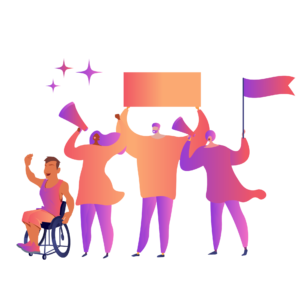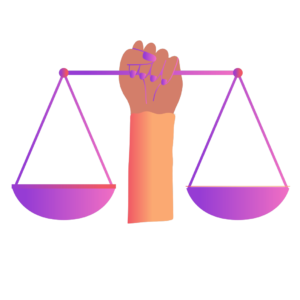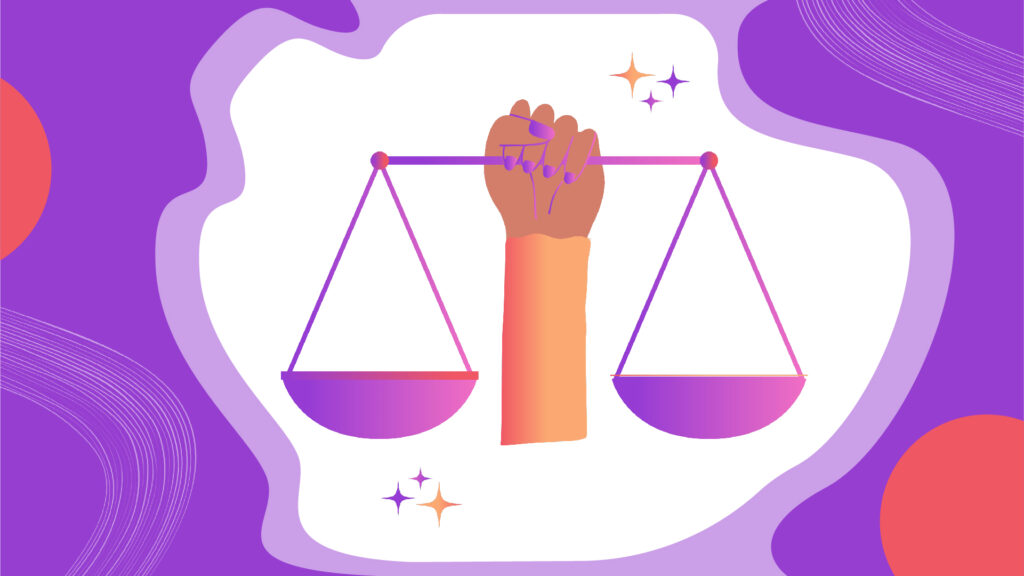Accessing information and education related to sexual and reproductive health in the Arab region presents a real challenge for adolescents and youth. How much more so when discussing the rights to sexual and reproductive health for people with disabilities? The youth population, aged between 15 and 24 years, in the Arab region is estimated to be around 73 million. Meanwhile, globally, around 15% of people have disabilities, according to United Nations figures.

People with disabilities face compounded difficulties in accessing sexual and reproductive health services and rights. This is largely due to societal beliefs ranging from families attempting to hide their disabled members, impeding their access to services, to the mistaken belief that such individuals don’t require knowledge or access to these services as they are irrelevant to their lives.
Hala Mahfouz, a young woman, has collaborated with a group of young individuals to raise community awareness about sexual and reproductive health for people with disabilities. This involved creating a specialized guide and organizing seminars and informational sessions for youth with various disabilities (mobility, hearing, visual, and multiple) to educate them about their rights and how to access these services. According to Hala, the seminars, which were designed with the participation of disabled youth, first covered general health concepts. The latter part delved into sexual and reproductive health, complemented by social media platforms to educate people with disabilities and their families about these rights.
Hala points out,
“Many people with disabilities grow older without any knowledge about their bodies because their families believe that this kind of information is unimportant. They’re under the impression that their disabled family members will never marry, thus deeming such knowledge unnecessary.”
Hala also draws attention to another issue: the inaccessibility of health centers due to a lack of suitable facilities and a general lack of awareness among medical staff on how to cater to various disabilities. The absence of sexual and reproductive health services for those with disabilities has significant repercussions, such as their increased vulnerability to abuse and violence. Hala cites the extreme cases of hysterectomies performed on girls with mental disabilities as one of the worst forms of violence.
Many health situations, according to Hala, have worsened considerably due to families delaying the medical treatment of their disabled children.
Educating people about reproductive health is a means of self-protection for individuals with disabilities against abuse and violence. Through comprehensive reproductive health programs, people with disabilities and their families are trained on how to prevent, protect against, and disclose various forms of abuse and violence. Reproductive health topics are especially crucial given their intersection with a broad spectrum of rights for people with disabilities. The importance of reproductive health awareness for people with disabilities across all age groups is evident in protecting them against exploitation and violence. Such services should ensure their right to access and obtain related services, make them readily available, and empower them to make decisions about their reproductive health.

The International Convention on the Rights of Persons with Disabilities has specific provisions related to the health and reproductive rights of people with disabilities. The Convention mandates the “provision of free or cost-effective care and health programs for persons with disabilities that are equivalent in scope, quality, and standards to those provided to others, including sexual and reproductive health services and general public health programs.”
